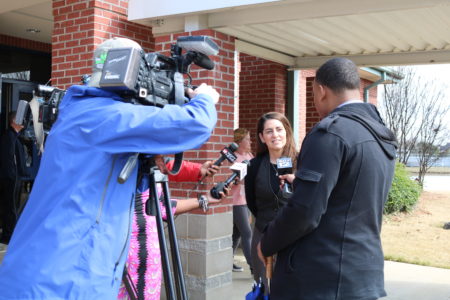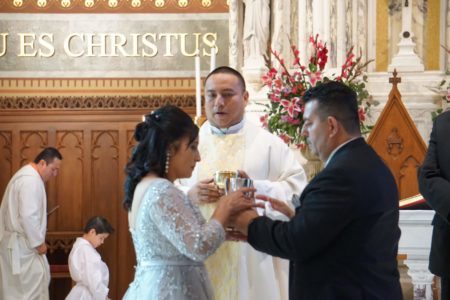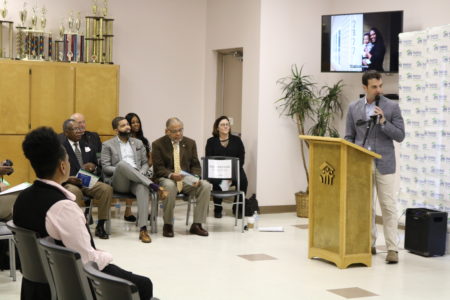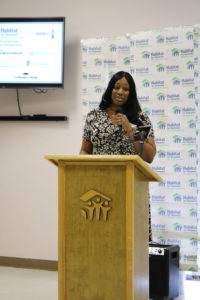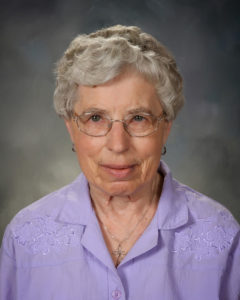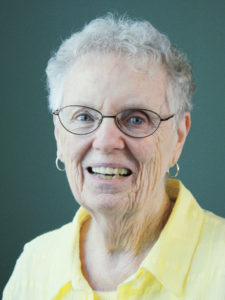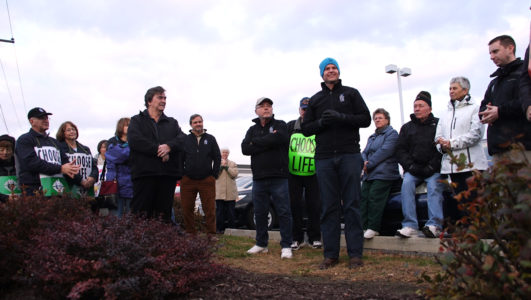SPIRITUAL ENRICHMENT
BROOKSVILLE The Dwelling Place, Seven Last Words of Christ, March 22-23. The retreat will examine selected reflections by several prominent voices within the church, among them Archbishop Fulton J. Sheen, Bishop Robert Barron and Father James Martin. Presenter: Melvin Arrington, parishioner of Oxford St. John and a retired professor of Spanish. He is a student of the life and writings of Venerable Archbishop Sheen. Begins with dinner at 6:30 Friday and concludes mid-afternoon on Saturday. Donation: $100. Details: (662) 738-5348 or email dwellpl@gmail.com for more information.
COVINGTON, Louisiana, Married Couples Retreat, March 16-17, at St. Joseph Abbey Christian Life Retreat Center. Come away for rest and spiritual strength and nourishment. Going on a Married Couples Retreat does not mean that something is failing but rather it is a falling into the graces of our Lord. Suggested donation: $275 per couple. Details: www.faithandmarriage.org or call (504) 830-3716.
CULLMAN, Alabama, Benedictine Sisters Retreat Center, Flannery O’Connor: suffering and redemption in the life and literature of a great world writer, Tuesday, March 12. In the more than 50 years since her death from Lupus at the age of 39, Flannery O’Connor’s literary and spiritual legacies have continued to grow. The retreat will acquaint newcomers with a complete overview of her life and work. Presenter: David King, professor of English and Film Studies at Kennesaw State University. He has published and presented widely on Catholic artists and writers and enjoys sharing the richness of the Catholic aesthetic and intellectual tradition. Cost: $30, includes lunch. Details: (256) 734-8302, retreats@shmon.org or www.shmon.org.
METAIRIE, LA, the Southern Regional Conference of the Catholic Charismatic Renewal, “The Spirit of Truth: Signs Wonders and Miracles” on Friday-Sunday, March 29-31 beginning at 7 p.m. and concluding with 11 a.m. Mass. It will be held at the Copeland Tower Suites and Conference. All priests, religious brothers and sisters, deacons and their families are invited to attend at no charge, but pre-registration is requested. Details: (504) 828-1368 OR info@ccrno.org or www.ccrno.org.
PARISH, SCHOOL AND FAMILY EVENTS
AMORY St. Helen, Book Discussion Group will read The Rent Collector by Cameron Wright Monday, March 11, at noon in the parish hall. Everyone is invited to read the book and plan to join the discussion. Details: church office (662) 256-8392.
FLOWOOD St. Paul, Women’s Guild Lenten Day of Reflection, “Refreshing the Body, Mind and Soul” Saturday, March 23, 8:30 a.m. – 2:30 p.m. Deadline to register is March 18. No cost, suggested donation for Domestic Violence Shelter. Details: wgstpaul@gmail.com or Renee Gosselin (601) 966-5452; Linda Rainey (601) 212-9802; Cheryl Marsh (860) 823-7878 or Renee Carpenter (601) 214-9457.
GLUCKSTADT St. Joseph, Yoga Classes continue each Tuesday evening at 6:00 p.m. in the Parish Hall. The cost is $7 each class and is donated back to the parish. Details: Teresa Speer at (769) 233-1989.
GRENADA St. Peter, Lenten Retreat, Saturday, March 16, begins at 9 a.m. and ends with 6 p.m. Mass. Bishop Sam Jacobs, Bishop Emeritus of the Diocese of Houma Thibodaux, will be the special speaker. Details: church office (662) 226-2490.
JACKSON St. Richard, Yoga classes focused on basics through foundation poses to promote flexibility, balance and a more relaxed body. This session will have a special focus on awareness of the core muscles. Classes continuing to meet Fridays from 9 – 10:15 a.m. in the Chichester Room on the following dates: March 1, 8, 15, 22, 29, and April 5. The cost is $8 per class. Proceeds go to the St. Vincent de Paul Society at St. Richard. Checks can be made out to St. Vincent de Paul. Details: claudiaaddison@mac.com or (601) 594.3937.
MADISON St. Francis of Assisi, Fat Tuesday Pancake Supper, Tuesday March 5, at 5:15 p.m. in the Family Life Center. Youth are needed to cook and serve. All monies raised will go to benefit their youth group activities. Details: church office (601) 856-5556.
MERIDIAN Catholic Community of St. Joseph and St. Patrick, Mardi Gras Party hosted by Knights of Peter Claver and Servants of Mary, Saturday, March 2, 6-10 p.m. Adults only please. Details: church office (601) 693-1321.
NATCHEZ St. Mary Basilica, Adult Sunday School is currently studying Robert Barron’s series The Mass. Details: Karen Verucchi at (601) 870-5388.
PEARL St. Jude, Women’s Retreat, Saturday, March 9, 9 a.m. to 4 p.m. Retreat Directors: Fran Lavelle, diocesan director of Faith Formation, and Father Lincoln Dall. Morning prayer, adoration, and the sacrament of reconciliation will be a part of the day. Forgiveness, reconciliation, and learning from the saints will be our themes. All women are invited. Details: Call the parish office to register in advance: (601) 939-3181.
SOUTHAVEN Christ the King, Mark’s Gospel live, Friday, March 15 at 7 p.m. A first century story of love and healing. Solo performance by Father Joseph Morris. Details: church office (662) 342-1073.
TUPELO St. James, North Mississippi Journey of Hope with special guest Father Burke Masters. Meet and greet Thursday, April 25, luncheon, Friday, April 26, 12–1 p.m. Father Masters is a former Mississippi State baseball player and current chaplain of the Chicago Cubs. This free luncheon will showcase the great work that Catholic Charities does in Mississippi. Meet and greet is $25, luncheon is free, but reservations are required. Details: To be a table captain for the event, go to https://catholiccharitiesjackson.org/joh/ or (601) 326-3714 or (601) 326-3758.
YAZOO CITY St. Mary, course on the Book of Revelation, Thursdays from 1-3 p.m. in the Parish Office. Please remember to bring your Bible to class. Details: (662) 746-1680.
YOUTH BRIEFS
JACKSON St. Richard, The St Richard Special Kids Parish Ministry will be hosting a Spring Art Show on Saturday, April 6, from 5-7 p.m. in Foley Hall. Pieces from the “Through Their Eyes” photography collection, a new series of saint icons, candles, as well as ceramic pieces will be available for purchase. Details: church office (601) 366-2335.
MADISON St. Francis of Assisi, Movie night, Friday, March 1. Doors open at 6 p.m. and the movie “I Can Only Imagine” starts at 6:45 p.m. Bring your favorite tailgating chair. Pizza, popcorn and nachos will be provided. Details: church office (601) 856-5556.
